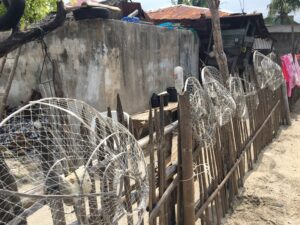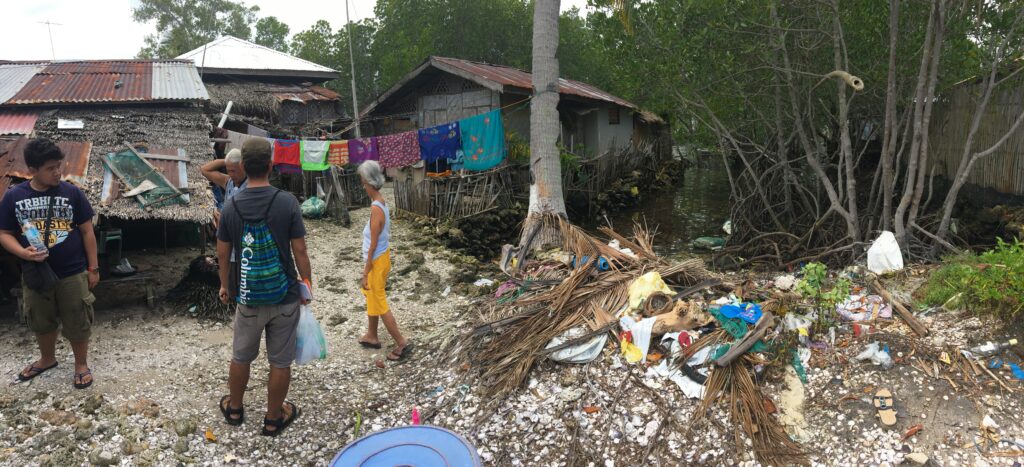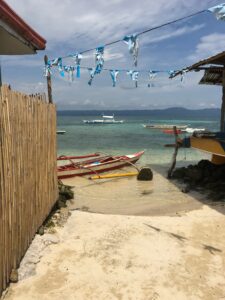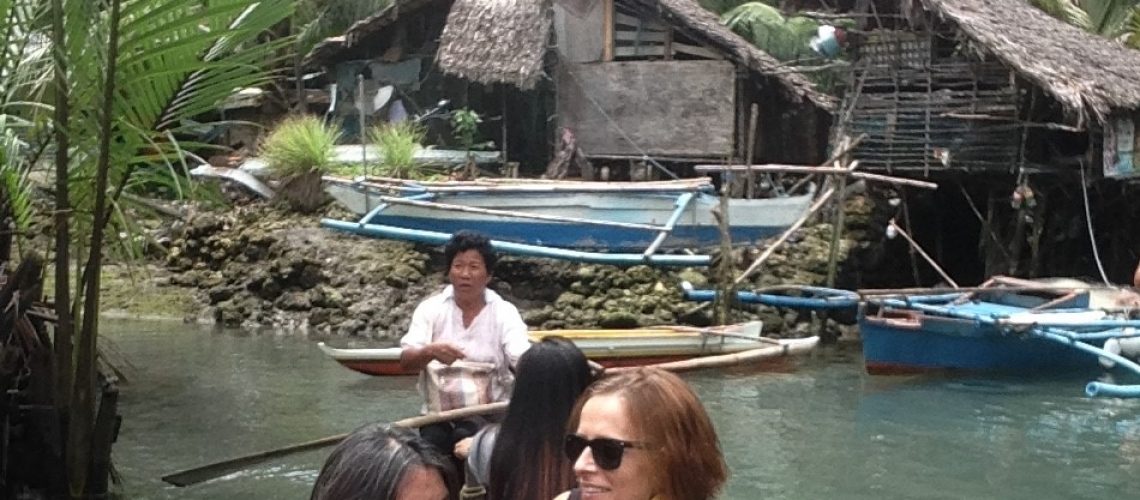
Assumptions make a ‘poor researcher’ out of you and me
By Rina Hauptfeld, 2019-2020 Sustainability Leadership Fellow and Ph.D. Student in the Department of Ecosystem Science and Sustainability and the Graduate Degree Program in Ecology. This blog post was originally published on the HUMANnature Blog.
I was sitting in the meager shade of a clapboard hut on a tiny island in the Philippines, chatting with a subsistence fisherman as he re-epoxied the tiny plywood boat he depends on to feed his family. The ground around us is rocky and dry. The warm shallow water of the local marine reserve just a few dozen meters away. He pauses from his work to tell me he doesn’t know why he has been trained to collect scientific data in his marine reserve. No, he has never donned the wooden googles or used the makeshift tape measure made of twine to estimate coral cover after being trained.
His words are anything but uncommon. But they were a surprise to me.
I went to the Philippines to find out how training local fishermen to monitor marine health was contributing to marine conservation and addressing the current extinction crisis. I knew that the Philippines, like many other developing tropical countries, has high biological diversity, and is among the richest in terms of number of marine species in the world. And that, unfortunately, diverse areas like the Philippines also often face the greatest environmental threats, leading to rapid species loss and environmental degradation. Poor subsistence fishers who depend on the dwindling resources in these areas are disproportionately hurt by environmental problems such as overfishing, dynamite fishing, and typhoon damage to reefs.

Globally, as marine life and the human communities that depend on it have become degraded and stressed, marine reserves have emerged as one of the most common ways to slow human impacts, especially for coral reefs. Reserves either permanently or cyclically limit the extraction of fish, urchins, seaweed, etc., to create a “savings account” that will protect the biological “principle” and eventually generate “interest” in the form of harvestable and regenerative spillover beyond the reserve boundaries. As of 2012, there were around 10,000 marine reserves covering 2.3% of the global ocean, an impressive quadrupling from 10 years earlier. And just in the Philippines, over 1800 small marine reserves have been set up.
But not unlike other biologically diverse regions, the Philippines lacks the money, personnel, and training to fully monitor the status and health of those fish, corals and other animals in marine reserves. The Philippines is ahead of the global game in shifting authority for management of marine resources from the central government to local governments and communities. This means local subsistence fishers who have a stake in the reserve and rely on the sea for their food and income have been trained to monitor their marine reserves by donning snorkels or scuba gear and counting fish and estimating how much coral is live, dead, covered in algae, etc. The scientific literature says local participation in monitoring can empower communities by making access to science more democratic, and by putting the information needed for decisions right in the hands of the users.

Why then, had this fishermen, and so many like him, not embraced the training they had received? I slowly realized that I was asking the wrong questions. In fact, I wasn’t asking questions of the community at all. That none of us were.
Instead, I had come into the community with assumptions. Assumptions that their participation in the monitoring was beneficial and empowering, and that building capacity for monitoring was useful to the community. The funding dollars that had originally helped design the very training programs I was studying put a premium on biological diversity, an international priority, rather than asking the local fishermen and communities what local their priorities were.

To support sustainability, all researchers working on issues that do or could impact people should take meaningful steps to produce knowledge salient to those who have a stake, whether they are poor Philippine fishermen, Colorado ranchers, or the nearby city council. The capacity we bring as scientists in terms of skills and money are invaluable, and ensuring that research is salient, the information is likely to be used, and the actions in response likely to be sustained is crucial. Fields like community-based participatory research, collaboration, service learning, and knowledge co-production, among others, provide excellent guidance on engaging communities and address problems conceived of outside the ivory tower.
